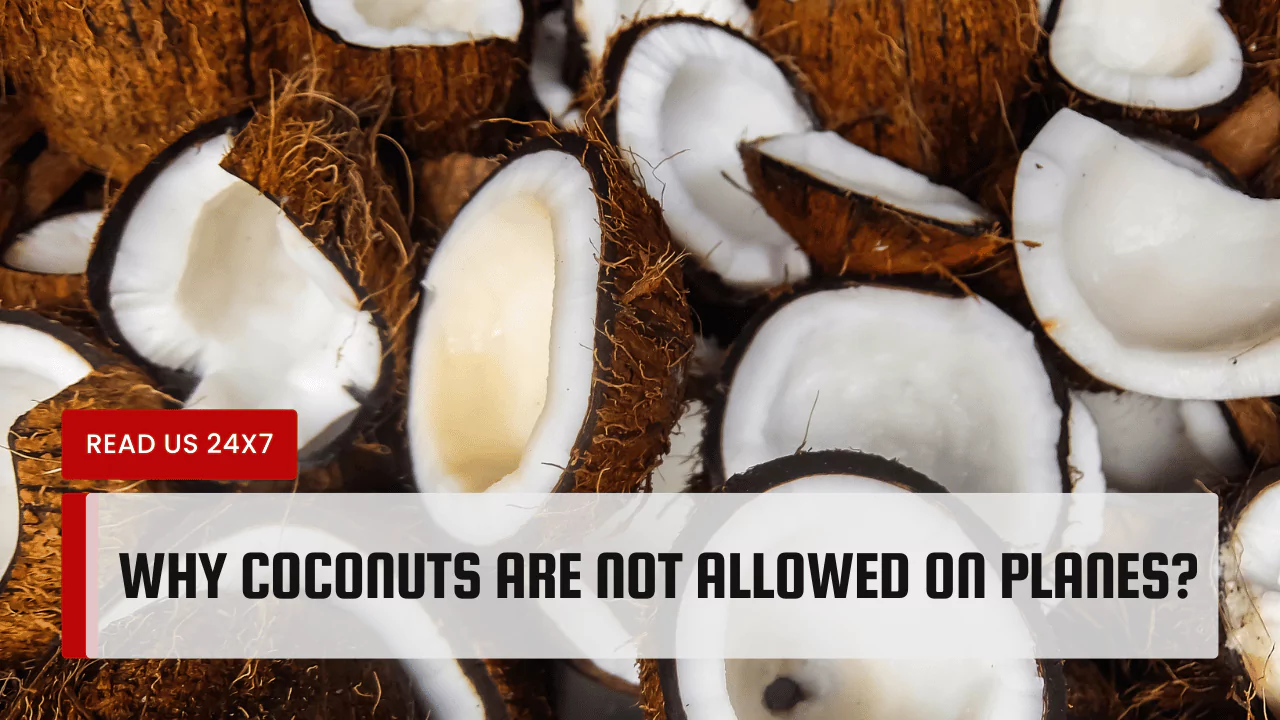Coconuts are strictly prohibited on airplanes due to their inherent fire risk. Their high oil content makes them highly flammable, and the enclosed environment of an aircraft, coupled with the heat generated during flight, creates ideal conditions for combustion.
Reasons Coconuts Are Prohibited on Aircraft
Risk of Combustion Due to High Oil Content
Coconuts contain a substantial amount of oil. This high oil content makes them potentially flammable. The fruit can ignite under certain conditions, especially if it is heated or subjected to sparks. Airports prioritize passenger safety. Hence, items that could pose a fire risk are not allowed.
Threat of Fires from Coconuts on Board
In addition to the oil, coconuts have a hard shell. If dropped, they can break open and spill their oily contents. This scenario could lead to a dangerous situation on a plane. Any item creating a fire hazard must be carefully regulated. Thus, coconuts fall into this category. The risk of a coconut causing a fire, even if it seems unlikely, is enough to justify the prohibition.
Guidelines for Transporting Coconuts by Air
Requirements for Drying and Packaging Coconuts
Transporting coconuts by air requires specific guidelines. If travelers wish to bring coconuts on board, they must be dried and packed correctly. Proper drying reduces their oil content, minimizing the risk of combustion. Packaging must prevent damage to the coconut during transit. These requirements make transporting coconuts more challenging than for other fruits.
Possibility of Checking Coconuts in Baggage
In some cases, coconuts may be checked in baggage. However, airlines may impose restrictions. Travelers must confirm whether their airline permits coconuts in checked luggage. Even if allowed, coconuts should be in proper condition to mitigate risks. Ultimately, communication with the airline is essential to avoid issues at the airport.
Rules for International Coconut Transport
Varying Regulations by Country
Different countries have their own rules regarding coconut transport. Some nations may ban them entirely, while others might have specific requirements. Regulations often depend on the potential for pests or diseases. Coconuts can harbor elements harmful to local agriculture. Knowing these rules helps travelers avoid legal trouble.
Necessity to Consult Airlines and Customs
Travelers must consult airlines and customs before flying with coconuts. Airlines usually have detailed lists of prohibited items. Customs regulations may also specify what travelers can bring into a country. Ensuring compliance prevents delays and possible fines. Researching the destination’s policies before travel is wise.
Comparison of Food Items Permitted and Restricted on Flights
Air travel has strict guidelines regarding food items. Certain foods are often permitted, while others are not. For example, many fresh fruits, like apples and oranges, usually fly without issue. These items typically do not present the same risks as coconuts.
In contrast, non-perishable snacks like nuts, chips, or granola bars frequently pass inspection. These snacks are safe and do not carry the risks associated with high oil content. Each airline may enforce its own set of rules. Nevertheless, understanding general guidelines helps travelers plan accordingly.
Travelers should remain mindful of these rules. Understanding what foods are allowed helps ensure a smooth journey. By following airline regulations, travelers can enjoy their flights without issue.
In summary, coconuts cannot fly with passengers for safety reasons. Their high oil content and potential for combustion warrant strict regulations. Understanding the guidelines for transporting coconuts, noting international transport rules, and comparing permitted food items can help travelers prepare adequately. Always check with airlines and customs for specific requirements before departure.


